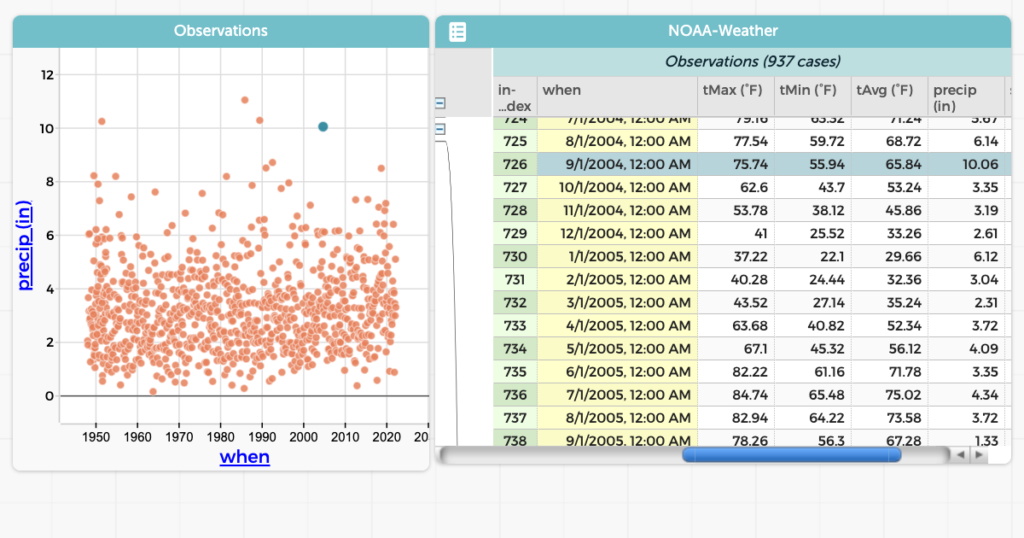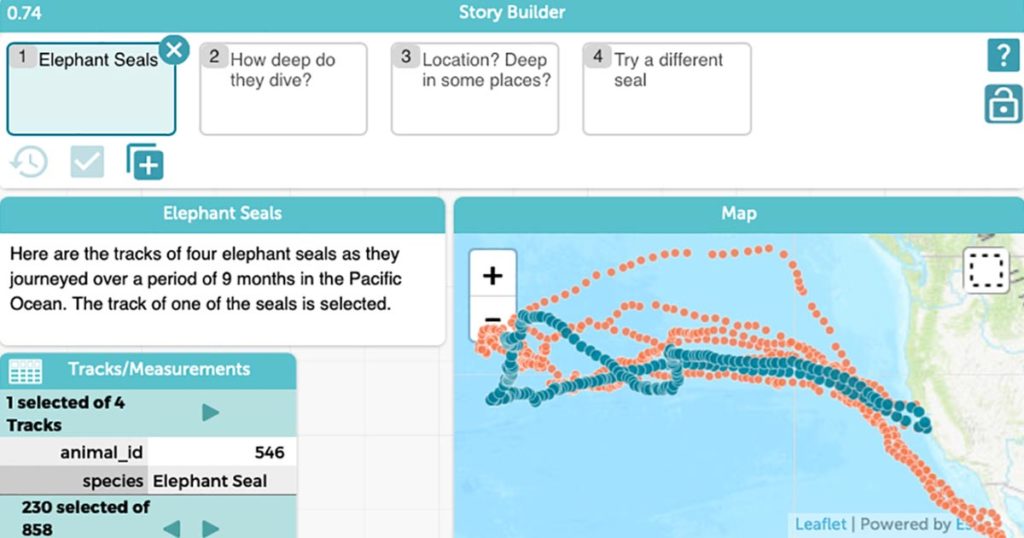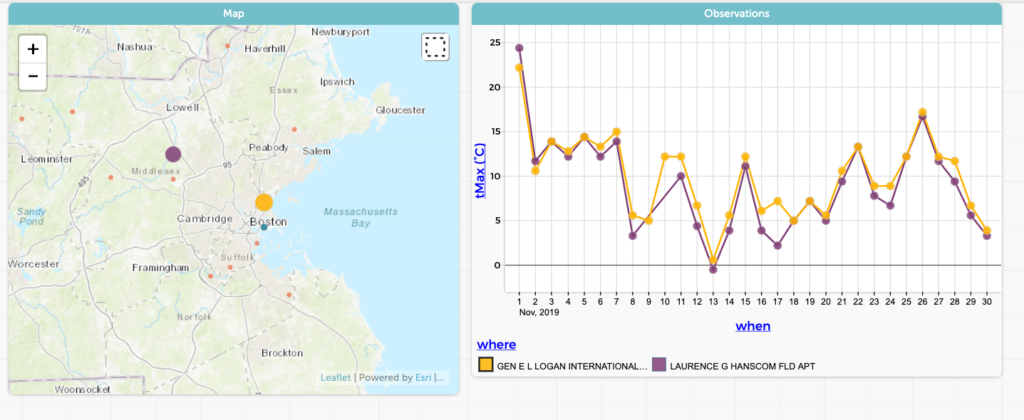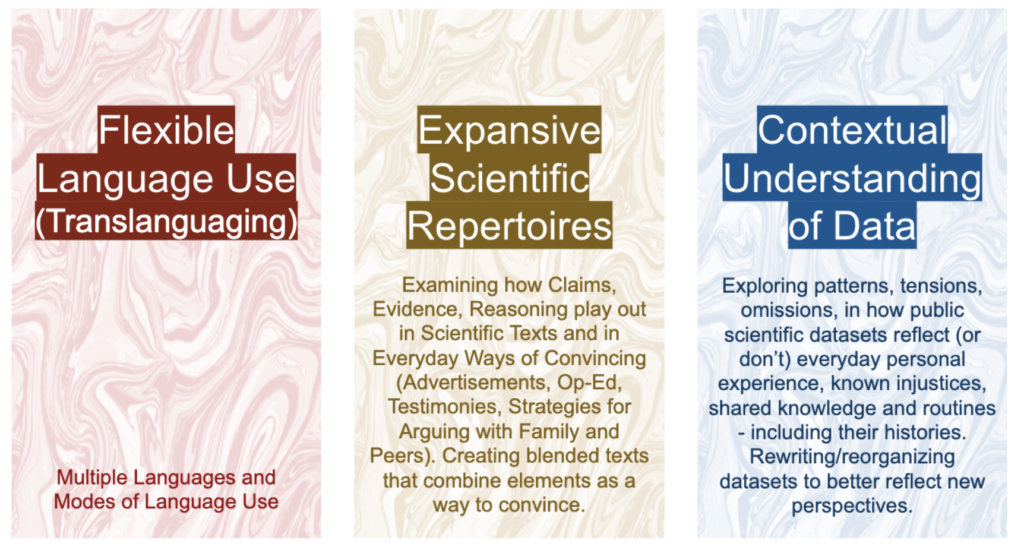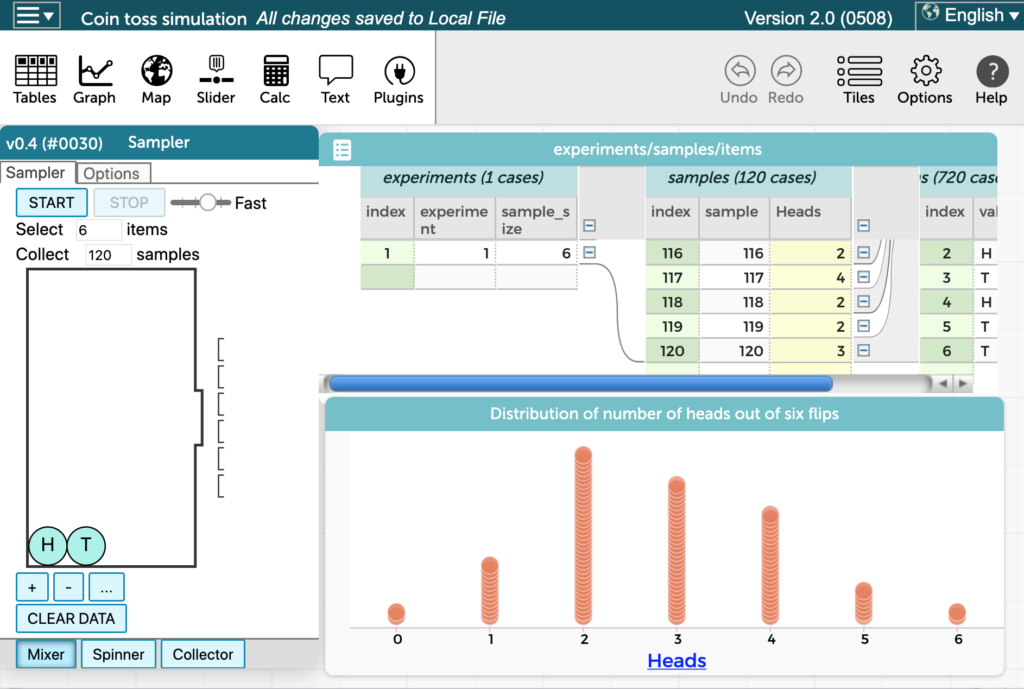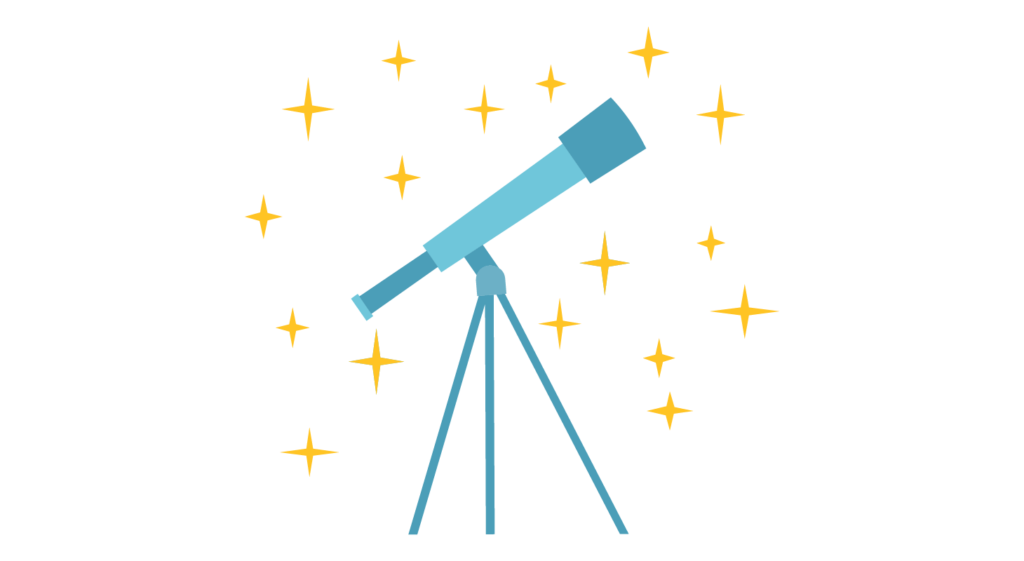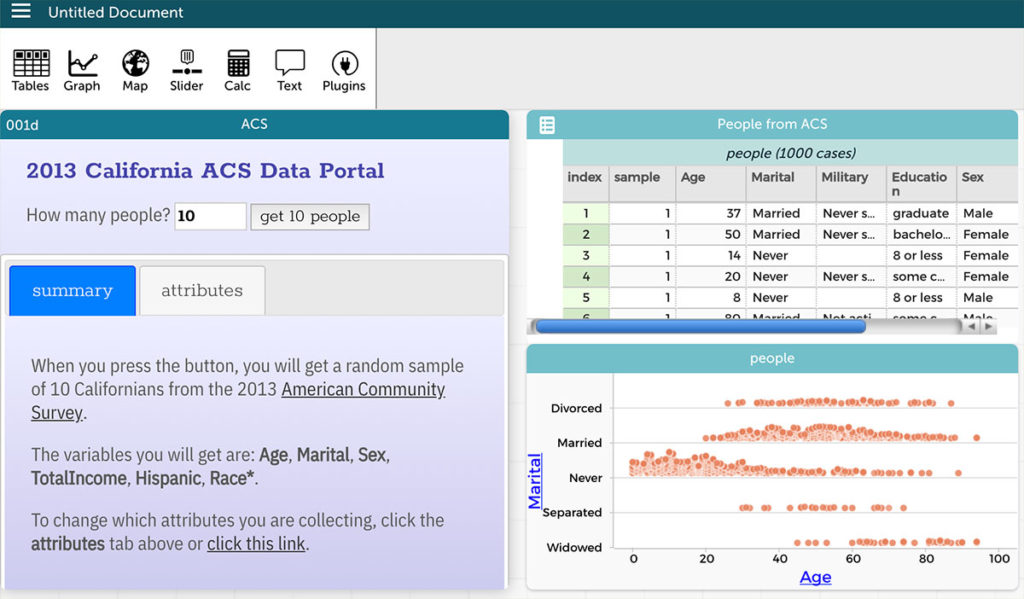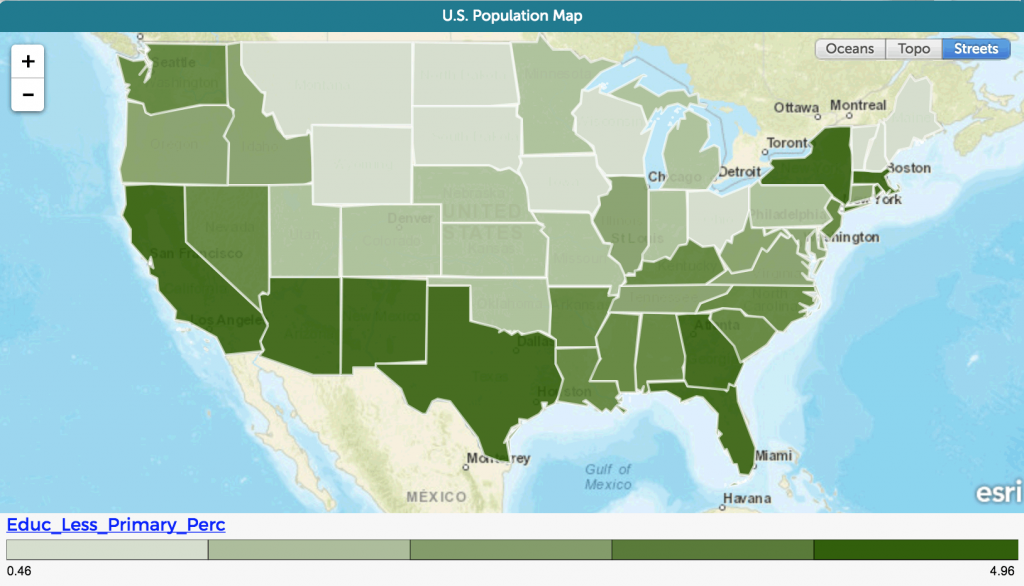Category: Author: William Finzer
At this six-month milestone of our efforts to re-engineer CODAP, I’m excited about the progress we’re making towards modernizing CODAP’s underlying source code. By moving from Sproutcore to more up-to-date web application tools, including Typescript, React, and D3, we’re working to ensure that CODAP will support data science education for many years—and for many more […]
In the WeatherX project, a collaboration involving EDC, Mount Washington Observatory, the University of Washington, and the Concord Consortium, we engage middle school students with weather data and weather science. We concentrate on extreme weather, of which there is plenty on Mount Washington. But, of course, every part of the world experiences extreme weather at […]
We typically think of stories as a narrative composed of text or perhaps text and images. But in the Data Age (i.e., right now), we hope to expand that definition to include data. The goal of the National Science Foundation-funded Writing Data Stories project is to help middle school students tell stories about patterns they […]
We experience weather every day. And it’s often the easiest icebreaker to start a conversation—“What’s the weather like in your neck of the woods?”—since weather is, well, everywhere! We know a lot about weather, too, thanks to datasets collected by the National Oceanic and Atmospheric Administration (NOAA). The NOAA database includes data from thousands of […]
Twenty-five middle school teachers from Berkeley, Oakland, and the surrounding areas of northern California recently met online as part of a virtual professional learning workshop called “Telling Data Stories: Scientific Data, Student Experience, and Authorship for Social Justice in Middle School Classrooms.” The workshop was offered by the Writing Data Stories project, a collaboration of […]
I’ve been developing data exploration software for decades, having led the Fathom Dynamic Data Software development team at KCP Technologies before joining the Concord Consortium in 2014. And I’ve been steering the development of our Common Online Data Analysis Platform (CODAP) since then, thanks to a grant from the National Science Foundation. Both Fathom and […]
We’re making data science accessible and empowering students to understand and analyze complex data without hours of coding lessons or years of advanced mathematics. A new collection of Dynamic Data Science activities designed for students in grades 9-14 is now available to get students working with data! National Health and Nutrition Examination Survey Data Portal […]
“There is a time, much greater in amount than commonly allowed, which should be devoted to free and unguided exploratory work (call it play if you wish; I call it work).” – David Hawkins, 1974* We often get a feel for things by messing around with them. When you toss a paper airplane in the […]
It’s impossible to overstate the importance of getting more students and teachers working with data across all subject areas. Name a problem we face as a society—from combating global warming to feeding the growing population, reducing violence, and increasing equity—and data-savvy people are at the heart of any attempt at a solution. The Concord Consortium, […]
Our Common Online Data Analysis Platform (CODAP) offers easy-to-use web-based software that makes it possible for students in grades 6 through college to visualize, analyze, and ultimately learn from data. Whether the source of data is a game, a map, an experiment, or a simulation, CODAP provides an immersive, exploratory experience with dynamically linked data […]
